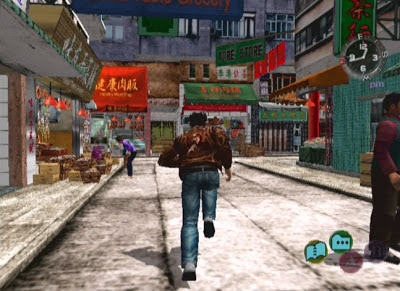Q: An analogy I've used is that the player is like a shaman on a spirit quest and as a narrative designer you're kind of like the spirit guide -- you have to put all things in their path that could be meaningful to them, but it's up to them to work out what is ultimately is important to them.
CA: Yeah, I think the more you can allow a player to leave their meaning on the environment, the better the game is going to be for them. Sometimes I get into an argument with designers [about whether] it's better to provide a narrative story arc, or is it better just to provide a bunch of system mechanics and let the player derive their story from that? There's been so many times where any story I've attempted to tell will get trumped by some action the player can do in the game systems, and it's a better story for that, and I can't argue with it.
Q: Do you have an example of that?
CA: Yeah. In New Vegas, our project director used the reputation mechanics between the factions to create a pretty awesome story, and he did it unintentionally. This entire sequence would have taken probably a month of several people's time to actually try and narratively create, and I don't think would have been as strong. He used the reputation system to piss off one faction, Caesar's Legion, and once you piss them off they start sending assassin squads after you whenever you try and sleep. Then he completely reversed and started pissing NCR off. And suddenly they start sending assassin squads after him [as well].
So he's running around the wasteland like a crazy man, and then he wakes up, and both assassin squads have spawned, but because their AI makes them hate each other, they started exterminating each other rather than attacking him. So he waited until they were all dead, and then he just shot the last one. Fantastic story. And because he was able to push the world to make that happen, I think that made it stronger than if we'd tried to narratively design that situation. So I think allowing for stories like that is really important.
Q: That's fantastic! There's a lot of games around now that use procedural generation to try and create situations like that. Do you play that kind of game?
CA: Not necessarily, although I do try and pay attention to what causes those [situations] in games. Usually I find that anything that changes the AI state of enemies is what generates the best stories. For example, I noticed I was able to create a lot of fun situations in Dead Island because they have a lot of tools and tricks that will change the AI states of various opponents. Like when you drop the meat jar on the ground, and suddenly you can make all the zombies move to a certain area. And from there you can start staging all sorts of fun stuff. And also usually anything that causes damage remotely in the environment, like fire or water, or even like in New Vegas where you can set up explosions from a difference. That can [bring about] all sorts of interesting stories. But I do wish there were more ways of doing [these things] that didn't necessarily involve violence or damage.






